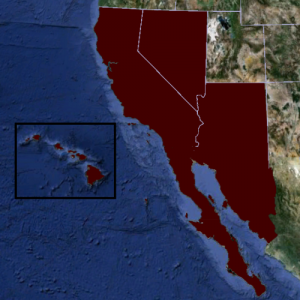When the Triple Crown Tour was originally proposed, a Super Regionals idea was also on the table. New columnist Alex Edinger looks at the potential merits of that system and how it might solve bid allocation controversy.
September 4, 2014 by Alex Edinger in Opinion with 16 comments
 It seems like every year, the Ultimate community feels as if the current USA Ultimate process to determine National qualifiers is inadequate. Every week we see problems and surprises in the rankings. In college, we saw the field expand from 16 to 20 teams, and we still have complaints about the way things are.
It seems like every year, the Ultimate community feels as if the current USA Ultimate process to determine National qualifiers is inadequate. Every week we see problems and surprises in the rankings. In college, we saw the field expand from 16 to 20 teams, and we still have complaints about the way things are.
It’s a difficult situation for USAU, because they are tasked with determining the purpose of setting a Nationals field. Is it to have the best 16 teams in the country play for a National Championship? If so, why do we play the games to go at all? In this case, some sort of committee setting the field may be better. However, as we have seen with every March Madness, some debatably deserving teams are left out.
Does USAU see Nationals as the culmination of post-season tournaments, which leads to a National Champion? If this is the case, is there enough evidence from the regular and post-season to determine the strongest field? Especially in a year such as this where the rankings and bid allocations seem more brow-raising than ever.
Perhaps the best way to approach the situation is to propose a step between Regionals and Nationals. As it stands, the nation is split up into eight regions. If there was inter-regional play before Nationals, this would ensure a more talented field, and still require the teams to earn their way into the Big Show by playing the games.
This structure would require the country to be split up into four Super-Regions (SR) based on geography. To put it simply, this could be accomplished by having the top four teams from each Regionals tournament advance to Super-Regionals. From here, the top four teams from the SR would advance to Nationals creating a field of sixteen teams. This would make seeding at Nationals easier, allow for a shorter regular season, erase blemishes on teams having a “bad day,” and still provide an avenue for underdogs to compete at the highest level.
USAU proposed something similar in 2012, which seems to have gone by the wayside. There is an extensive regular season outlined which is somewhat similar to the current TCT tiered structure, and still makes it difficult for new teams to rise up and make Nationals. However, the post-season structure would have a bigger difference that could have large implications at the Club level. The USAU Super-Regionals would involve four eight-team tournaments, which would determine the Nationals field. The Super-Regionals teams would be determined by automatic bids and rankings.
However, with the USAU proposal, there would be four Super-Regional regular season champions and four Super-Regional champions from the Series to set the Nationals field. This would mean that Nationals would only be an eight-team event, with half of the field not having to participate in the Series to get there. Again, this raises the question as to what is the purpose of Nationals. Is it to cater to the “top 16” teams in the country (half of whom probably don’t have an actual chance at winning the tournament)? Or is it to hold an event with the highest quality Ultimate our country has to offer and crown a winner? There are certainly advantages to this format as it allows for higher quality Ultimate at the tournament, and marketing the entire event to TV exposure would become easier.
Even with all of the benefits that accompany this proposal, there are a few downfalls to any Super-Regionals system. It provides a slimmer chance for those Cinderalla stories we all love as it forces teams to play more games to determine the contenders. Travel expenses would rise, as would the chance for injuries.
Maybe the lesson to learn is that no matter what, there will always be a 17th team (or 21st). There will always be someone left out, and there will be people to complain about the current structure of the post-season.